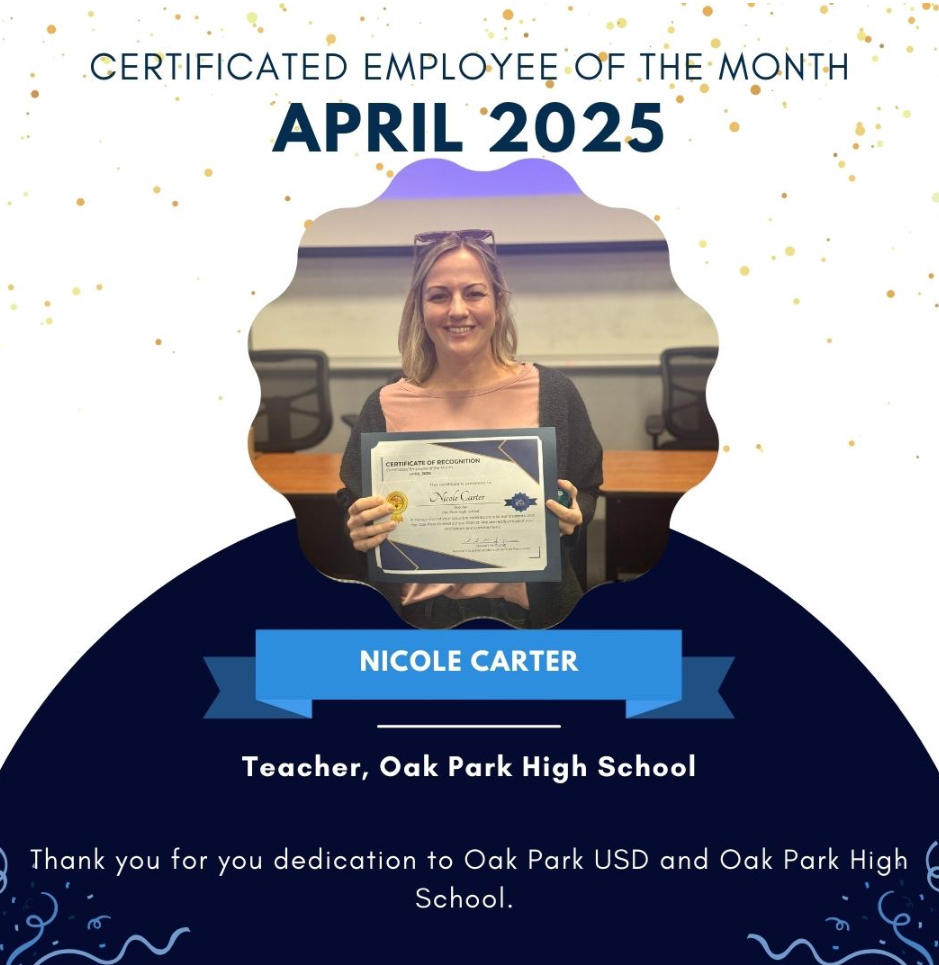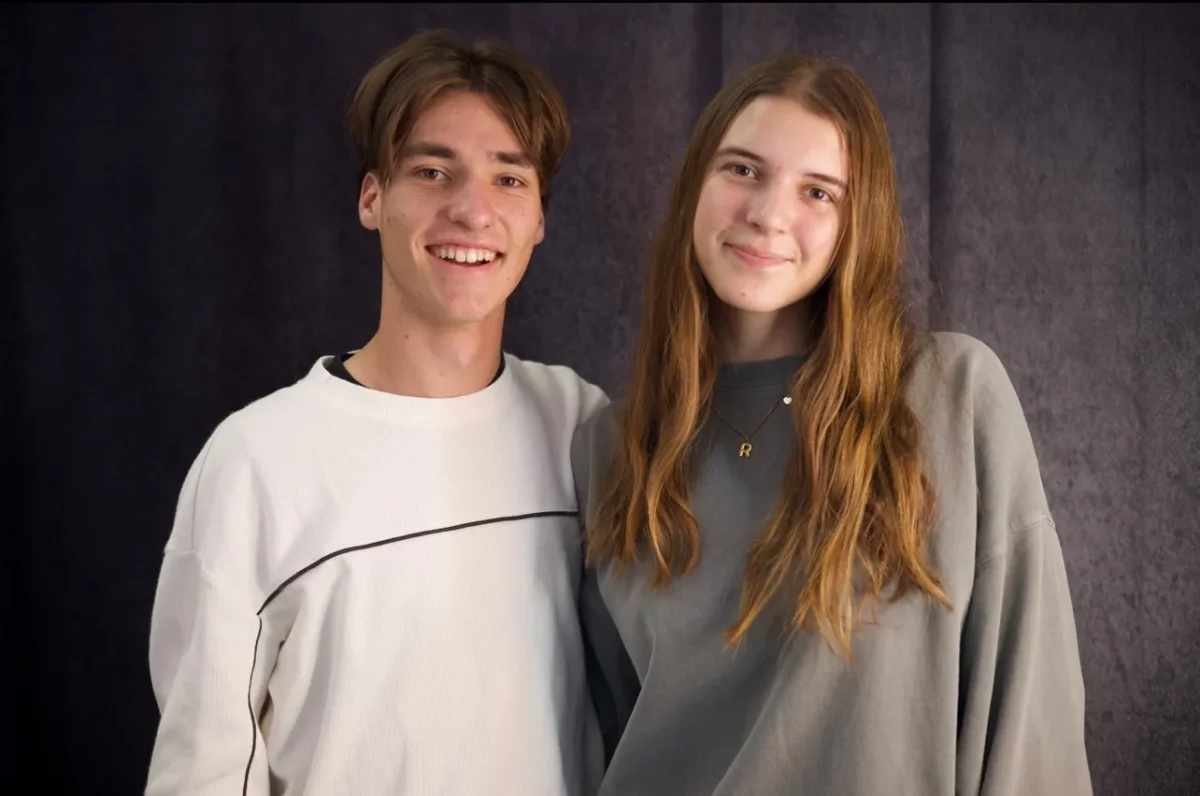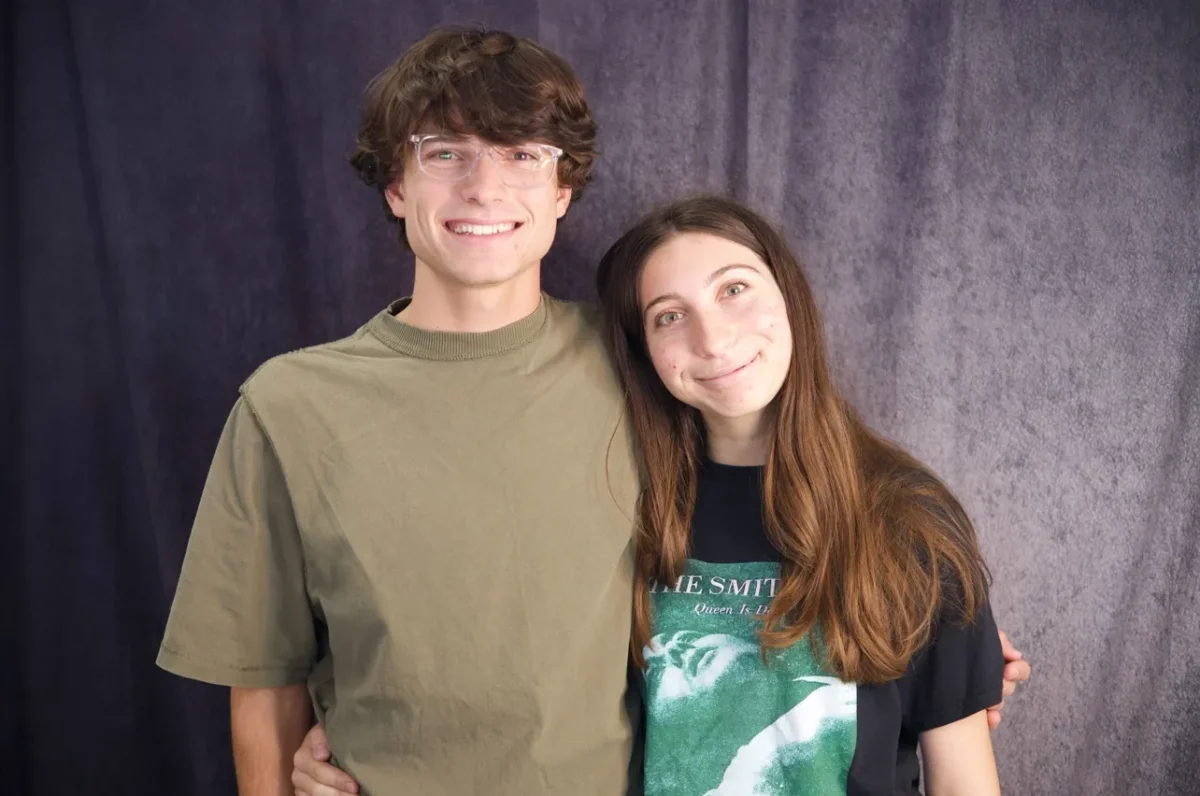When you walk past the i building you will undoubtedly find Douglas Cavette, the new math teacher at Oak Park High School, smiling as he stands by the door and greets his students. His classroom has many unique decorations, from his hockey player posters to his Pokémon themed University of California Davis graduation cap. Although he teaches math, his favorite subject is surprisingly not math; it is history.
“In general, I like history because it is always interesting to learn how we as humans behave with each other,” Cavette said. “I do not usually like U.S. History but I liked [my high school] class and I liked the teacher. She really made it interesting for me. I like looking at art and seeing the different trends, especially in France from the Renaissance age to the 1700s. It is so fascinating to see how they change.”
Regardless of his passion for history Cavette realized he had a gift for teaching math.
“Obviously, I like math,” Cavette said. “I think I am better at possibly explaining [math] more [than history] because it is very definite. In high school, I was helping a lot of my classmates so even then I was getting used to being a teacher. I even tried to make sure they did not copy [me]. That was because I got caught once for letting someone copy me in 6th grade so that traumatized me and ever since then I was like ‘No, you have to try it out first.’”
He continued to pursue his passion for mathematics education in college.
“In college, I knew I wanted to be a high school math teacher so I kept on following that path, but I was also a history minor at UCSB. Students ask me ‘why not history?’ and it is because I do not think I could tell someone how to write. Writing is very personal and I do not think I could teach you how to write a thesis and a body paragraph.”
In 2021, Cavette graduated from UC Santa Barbara with a Bachelor of Arts in Mathematics and then graduated from UC Davis in 2023 with a Master in Mathematical Teacher Education.
“I got a Master of Education in math with a high school teaching emphasis, the same as Mr. Weintraub if you ever want to ask him,” Cavette said.
After college, Cavette looked for a job and through the website, EDJOIN, found a listing at OPHS.
“I was just looking in Ventura County and Oak Park popped up. I had never heard of it because I was used to Oxnard schools showing up. I [then] looked it up and I saw amazing things about Oak Park, like how they are number one in the county so I was getting pretty impressed with that, and I saw the size of the school. It was pretty close to my high school and I just applied. Thankfully, [Matt] McClenahan, [Robin] Midiri, [Rebecca] Custodio, [Natalie] Smith and [Lauren] Heinrich allowed me to be interviewed by them twice.”
When Cavette found out he got the job, he was overjoyed.
“I was beyond excited on the day Mr. McClenahan called to inform me,” he said. “It was one of those moments where your self-worth is boosted. I am quite sure there were quite a few applicants, but it felt special to be the one chosen.”
With one month in, Cavette has noticed many differences compared to other schools he has taught at.
“I really love the work ethic in my classes,” Cavette said. “A lot of students are actually willing to discuss with each other which at my other school was just not the case. If you told them to work with each other, they were just shy; they did not like the idea. A lot of [OPHS students] do their homework on time.
One of the features that has impressed Cavette the most is the support time system.
“Some of [the students] are really [studious] where they will come in to support time. I like the idea where support time is not mandatory; it is really on you to make the decision that you need the help. I have seen it at my other school where it is mandatory. You have to sit through the class and it just is not the same. Students did not work. They just did not have the same drive that I see here.”
Cavette’s teaching philosophy is to not only educate his students, but to also create a safe, welcoming place to encourage learning.
“I just hope that when [my students] come into my class, they feel comfortable enough to actually work and learn math, even if it is a subject they do not like or they have had a lot of trauma with in the past. I try to praise them and boost them up so they feel more comfortable in math. I believe that if they at least feel comfortable in the class, they will have an open-mind about actually learning what is in the class.”









